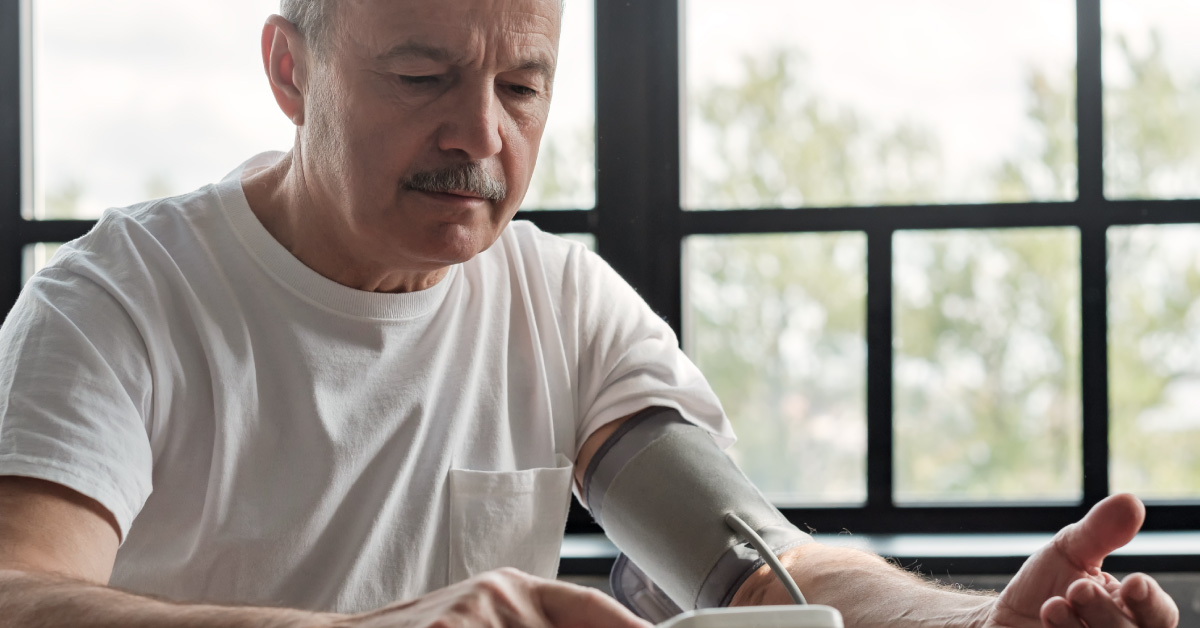High Blood Pressure Awareness Month: Surprising Things That Can Raise Blood Pressure

May is High Blood Pressure Awareness Month, and your local Corpus Christi ER would like to take this opportunity to educate the community about the importance of checking your blood pressure regularly.
Almost half of American adults struggle with high blood pressure or hypertension. Blood pressure refers to the force exerted by blood against the arteries walls. When it exceeds the normal level, your heart exerts more effort in circulating blood throughout your system, increasing the likelihood of heart disease, kidney disease, or stroke.
The Centers for Disease Control and Prevention reveals that high blood pressure accounted for over 500,000 deaths in 2019. This may be challenging as hypertension does not have any symptoms, leaving many people unaware of their condition. The only way to detect high blood pressure is through measurement, and a normal reading should be less than 120/80. If the blood pressure level is above 140/90, it is diagnosed as hypertension.
This article will discuss the primary contributors to high blood pressure, including some lesser-known risk factors.
High blood pressure: what causes it?
High blood pressure can be caused by different factors, but unhealthy habits such as insufficient physical activity and poor diet are often the culprits. Other significant risk factors for high blood pressure include:
- Obesity or being overweight
- Smoking
- Too much salt in the diet
- Race and genetics
- Older age
- Excessive alcohol consumption
Aside from these factors, there are other less familiar causes that can lead to high blood pressure.
Can anxiety cause high blood pressure?
Although chronic anxiety does not directly cause hypertension, episodes of intense anxiety can lead to temporary spikes in blood pressure. However, anxiety can indirectly contribute to high blood pressure by encouraging unhealthy behaviors or coping mechanisms such as smoking, poor eating habits, and excessive alcohol consumption.
Similarly, stress can also lead to temporary spikes in blood pressure, and stress-induced unhealthy habits can contribute to elevated blood pressure levels. While there is no concrete evidence that stress causes high blood pressure, managing stress levels can indirectly benefit overall health and blood pressure. Adequate sleep and regular exercise can help reduce stress levels and lower blood pressure.
Sleep apnea and blood pressure
Sleep apnea is a condition that causes interruptions in breathing during sleep, resulting in snoring and excessive tiredness. While blood pressure usually drops during sleep, individuals with obstructive sleep apnea may not experience the same dip, increasing their chances of developing severe cardiovascular problems. In sleep apnea, blood pressure rises due to the decrease in oxygen levels caused by interruptions in breathing during sleep.
Can dehydration cause high blood pressure?
High blood pressure has been associated with dehydration. When the body lacks sufficient fluids and becomes dehydrated, the blood will have a higher concentration of sodium. The increased sodium concentration sends a signal to the body to produce the hormone vasopressin, which helps the kidneys retain water. However, vasopressin also constricts the blood vessels which leads to an increase in blood pressure.
Hypothyroidism and blood pressure
Hypothyroidism is a medical condition where the thyroid gland doesn’t produce sufficient hormones, leading to symptoms such as fatigue, weight gain, muscle weakness, and constipation. Along with these symptoms, hypothyroidism is linked to blood pressure as it can slow down the heart rate and narrow the blood vessels, ultimately causing an increase in blood pressure.
Hyperthyroidism, another thyroid disorder, can also affect blood pressure levels. In hyperthyroidism, the thyroid gland becomes overactive, causing the heart to work harder than usual, leading to elevated blood pressure.
How to reduce blood pressure
Thankfully, there are some lifestyle adjustments you can make to lower high blood pressure.
- Regular exercise
- Reducing sodium in the diet
- Losing weight
- Drinking less alcohol
- Lowering stress levels
- Eating healthy
- Getting enough sleep
- Quitting smoking
Avoid certain foods like those high in sodium such as canned soups, cold cuts, chips, and pizza. Sugary foods like sodas, processed desserts, and fruit juices should also be avoided along with energy drinks and caffeinated coffee.
Also, it’s beneficial to incorporate certain foods in your diet to manage high blood pressure. Foods like tuna and salmon, berries, lentils and beans, fruits, low-fat dairy, vegetables, and whole grains are excellent choices.
When high blood pressure is an emergency
High blood pressure typically doesn’t have noticeable symptoms, but certain signs indicate an urgent need for immediate medical attention. Headaches, seizures, vomiting, rapid heartbeat, chest pain, and shortness of breath are all causes of concern if you are hypertensive.
If you experience any of these symptoms and have been diagnosed with high blood pressure, it’s important to seek medical attention immediately. You can visit your nearest Physicians Premier facility as we are available 24/7/365 to address any emergencies related to blood pressure, cardiac issues, or any other medical emergencies.
Sources:
“Hypertension,” Centers for Disease Control and Prevention, https://www.cdc.gov/nchs/fastats/hypertension.htm
“Facts About Hypertension,” Centers for Disease Control and Prevention, https://www.cdc.gov/bloodpressure/facts.htm
“High Blood Pressure Symptoms and Causes,” Centers for Disease Control and Prevention, https://www.cdc.gov/bloodpressure/about.htm
“Anxiety: A cause of high blood pressure?” Mayo Clinic, https://www.mayoclinic.org/diseases-conditions/high-blood-pressure/expert-answers/anxiety/faq-20058549
“How Sleep Apnea Affects Blood Pressure,” Sleep Foundation, https://www.sleepfoundation.org/sleep-apnea/how-sleep-apnea-affects-blood-pressure
“Hypothyroidism,” American Thyroid Association, https://www.thyroid.org/patient-thyroid-information/ct-for-patients/february-2020/vol-13-issue-2-p-3-4/
“10 ways to control high blood pressure without medication,” Mayo Clinic, https://www.mayoclinic.org/diseases-conditions/high-blood-pressure/in-depth/high-blood-pressure/art-20046974


